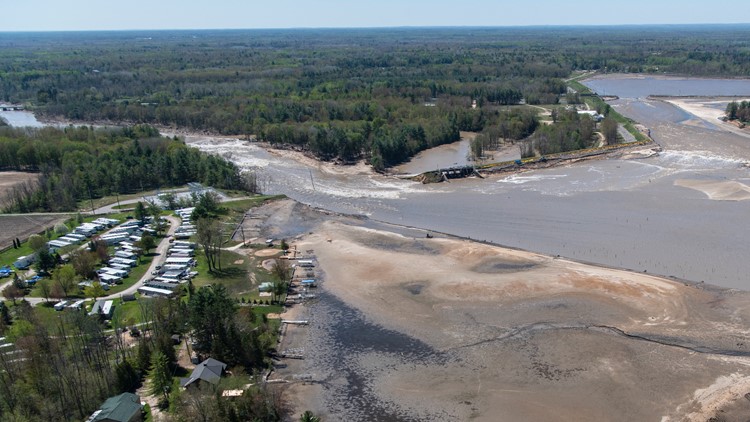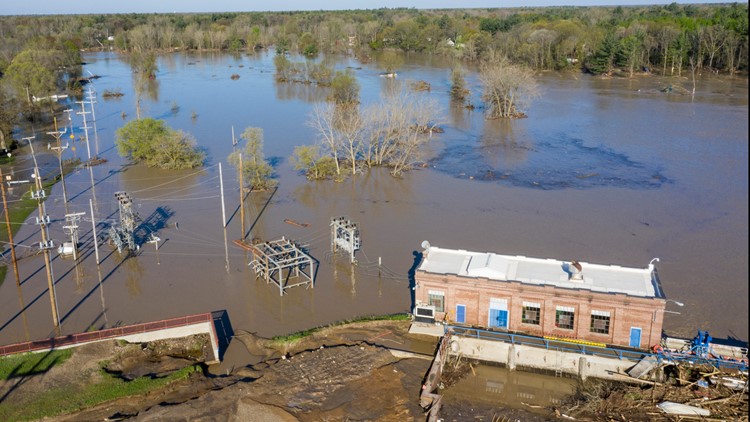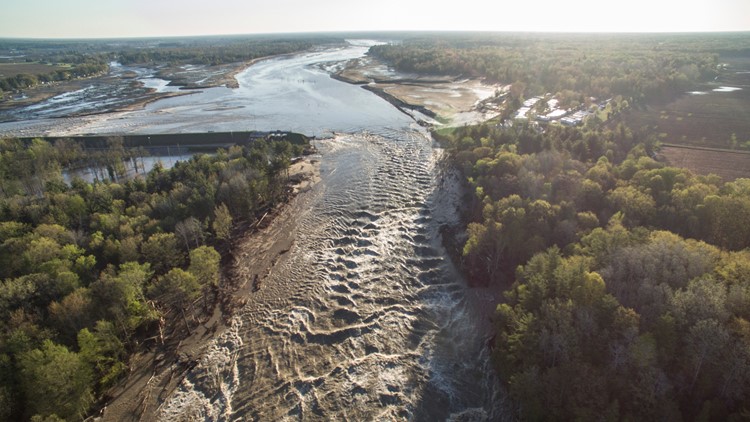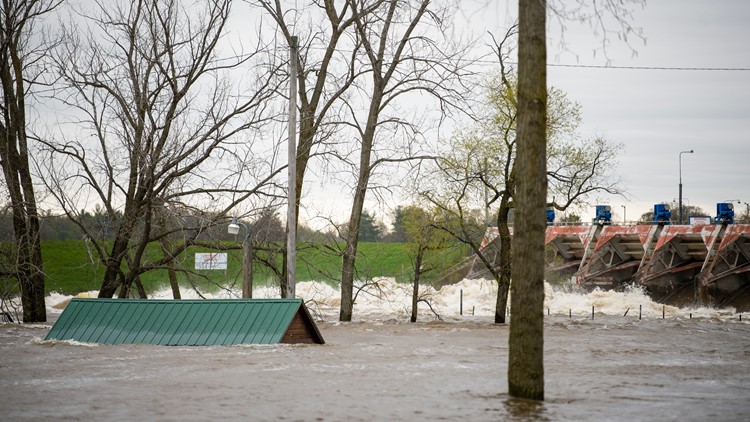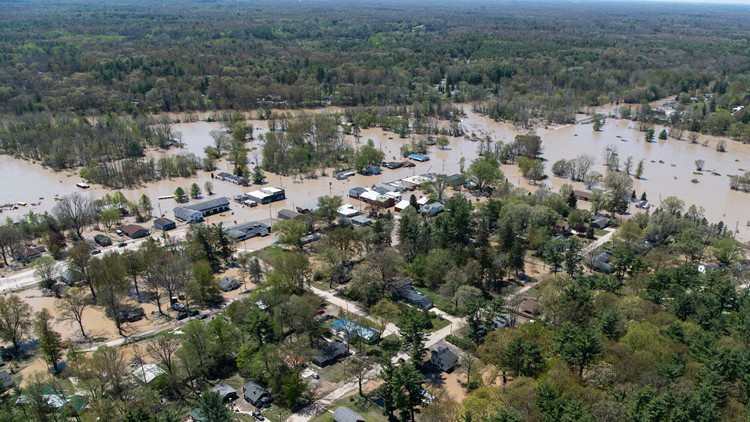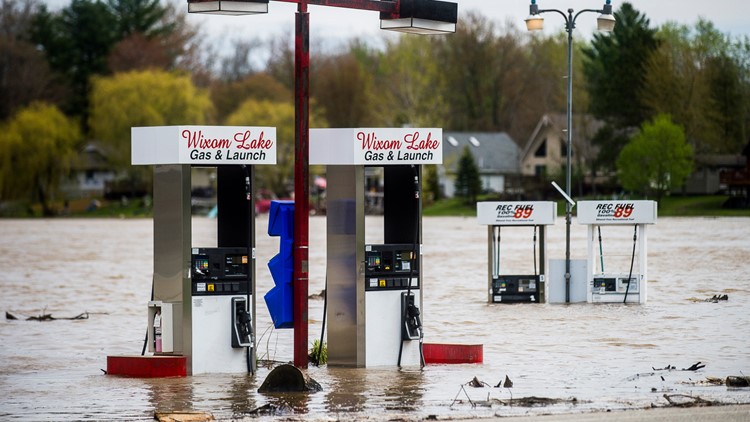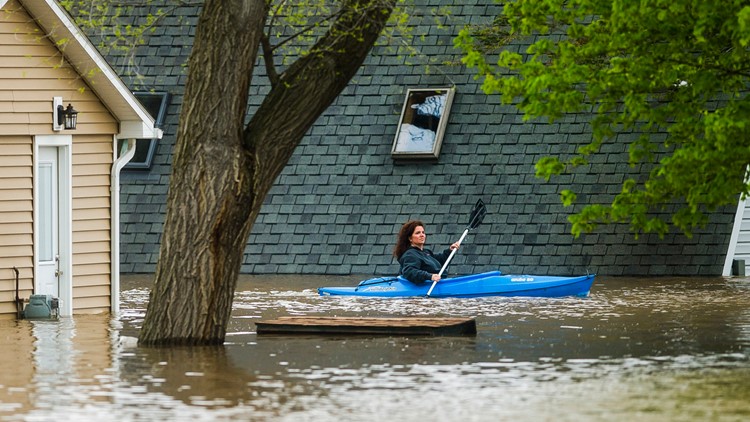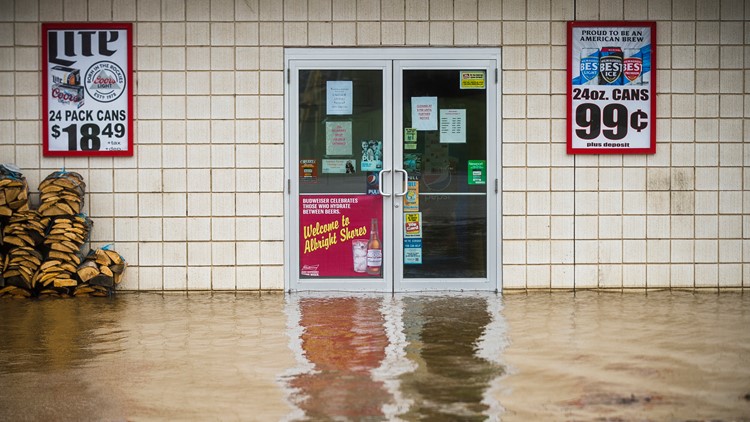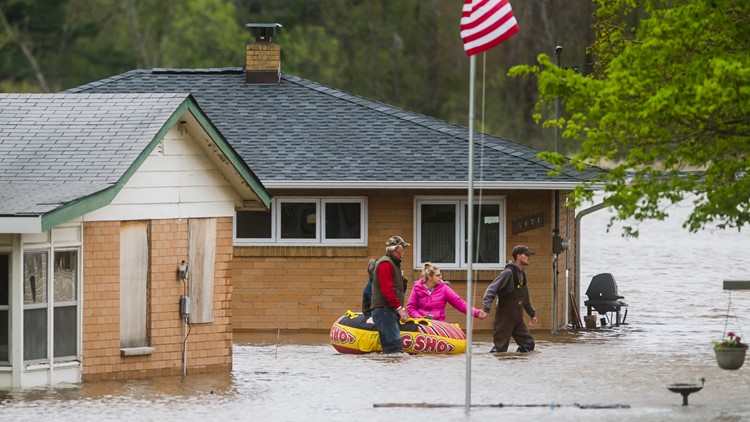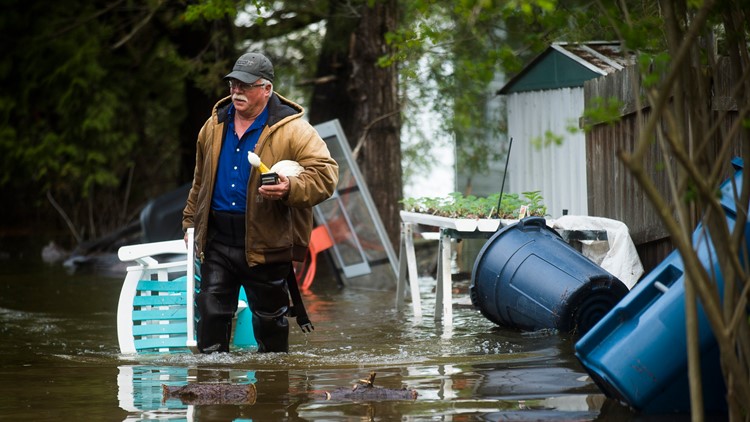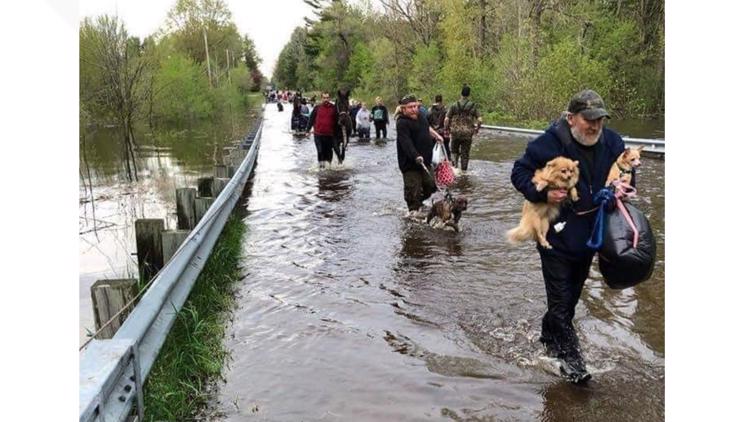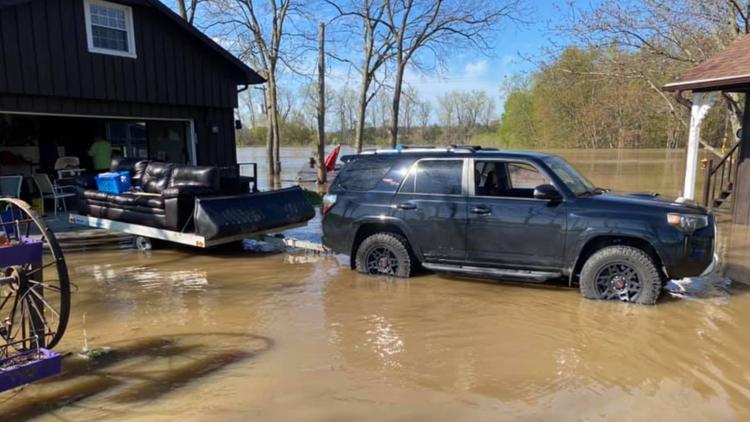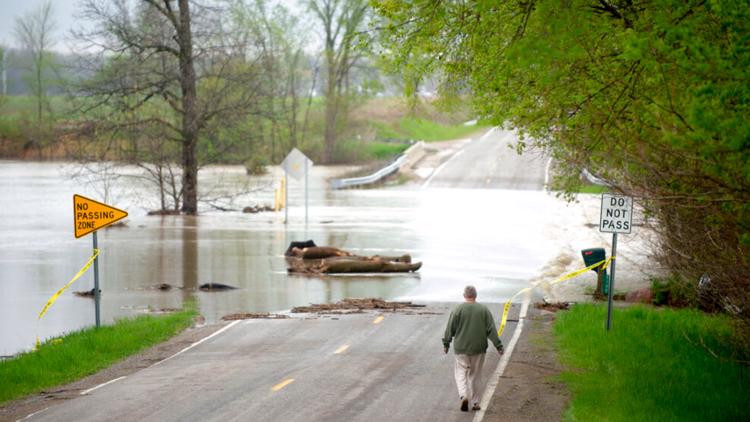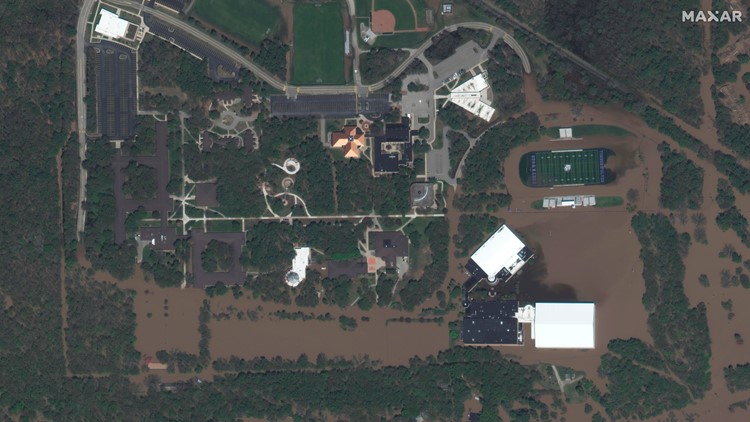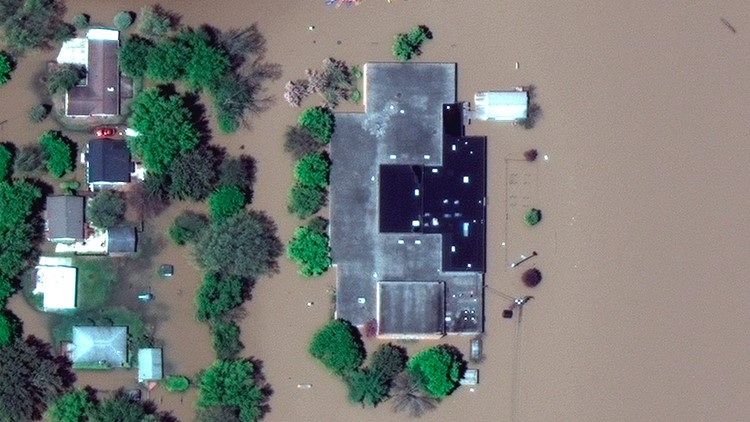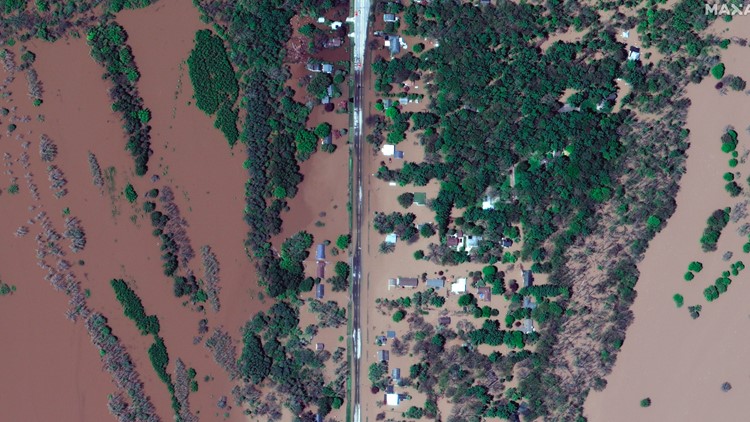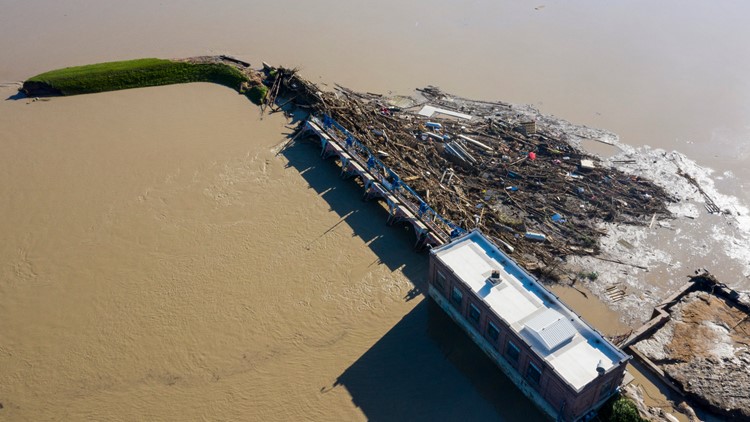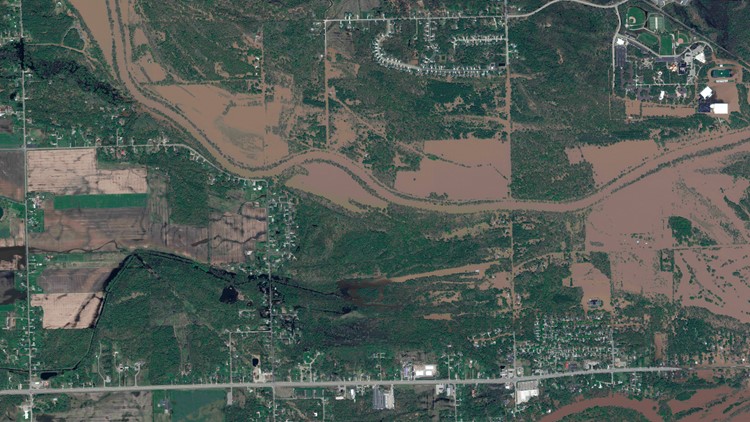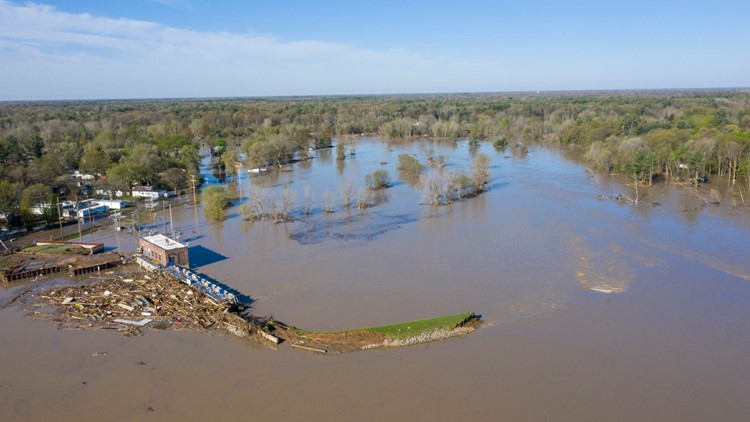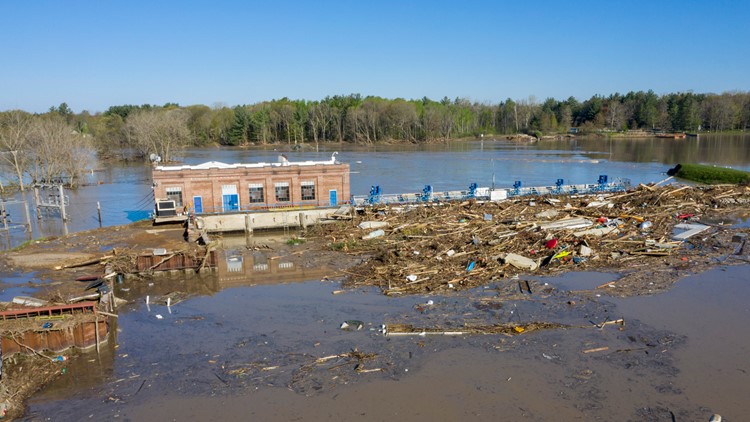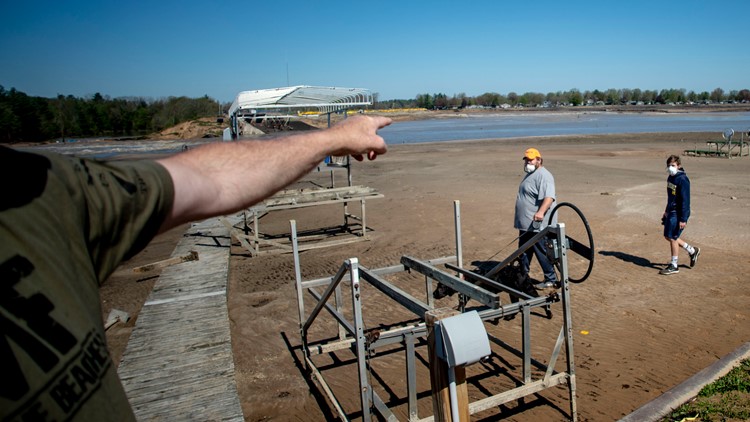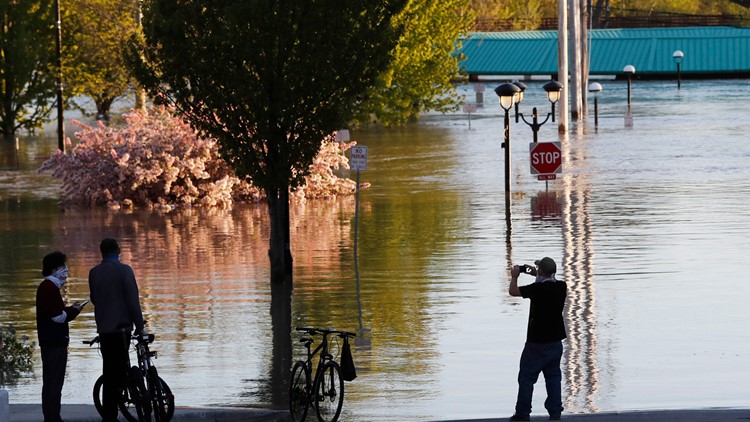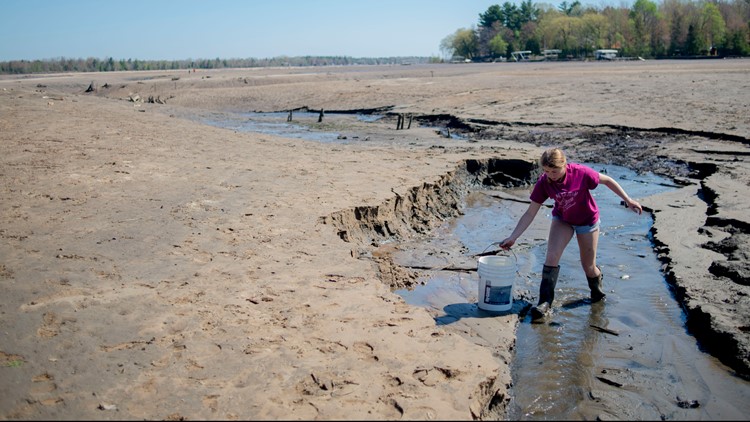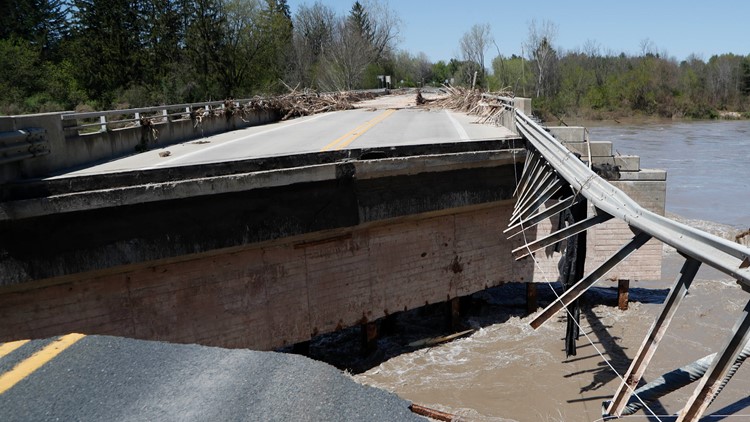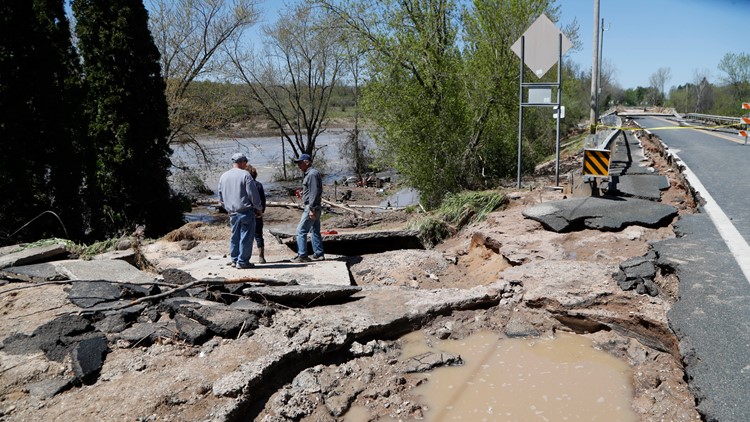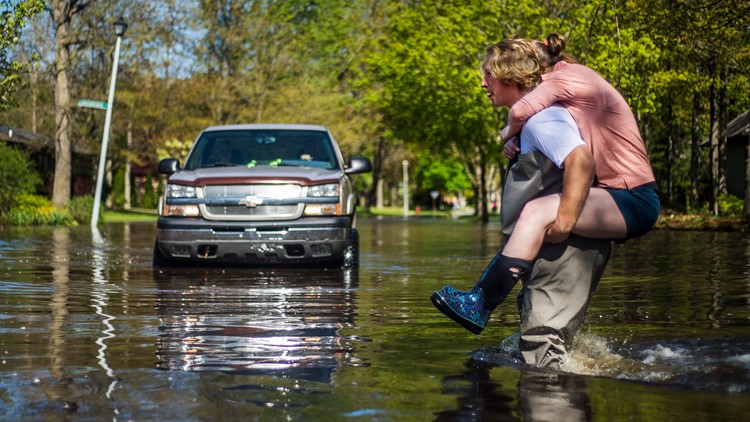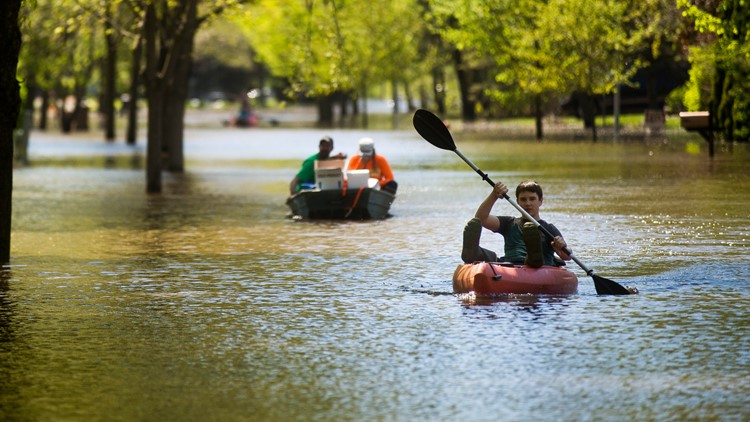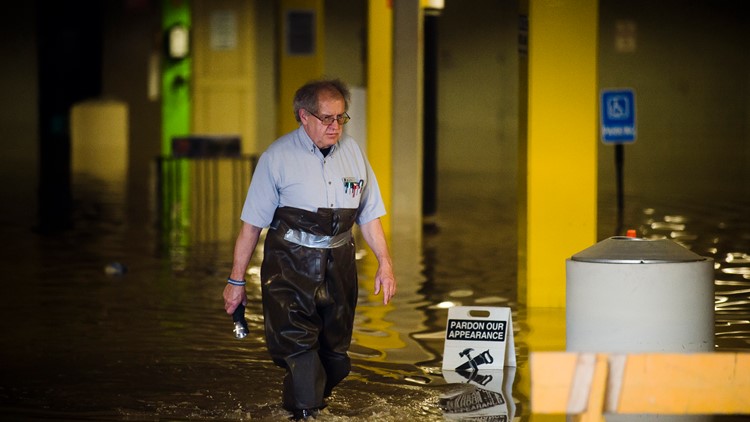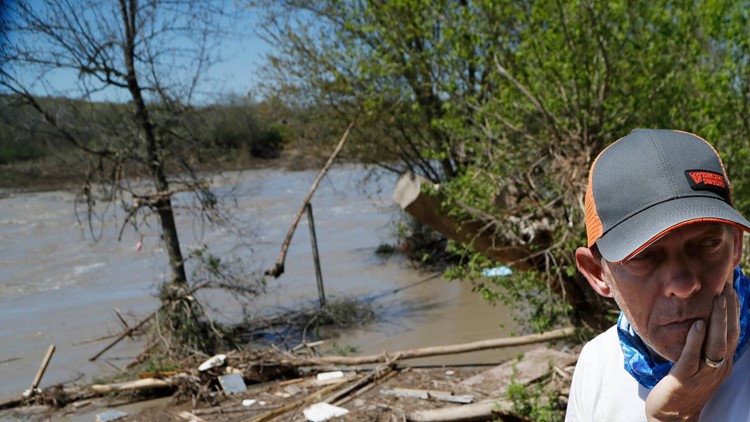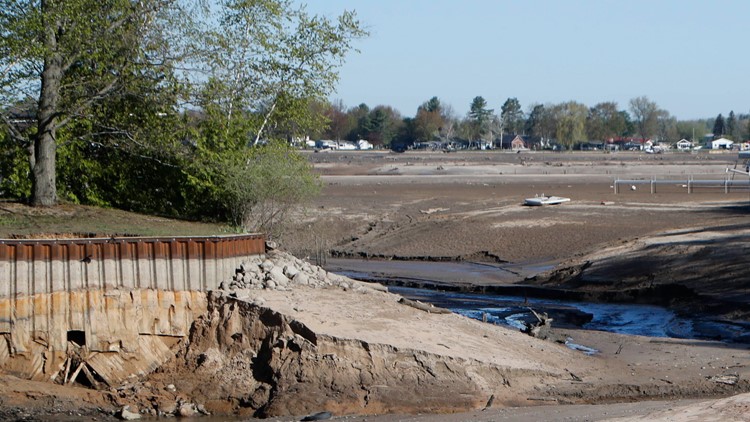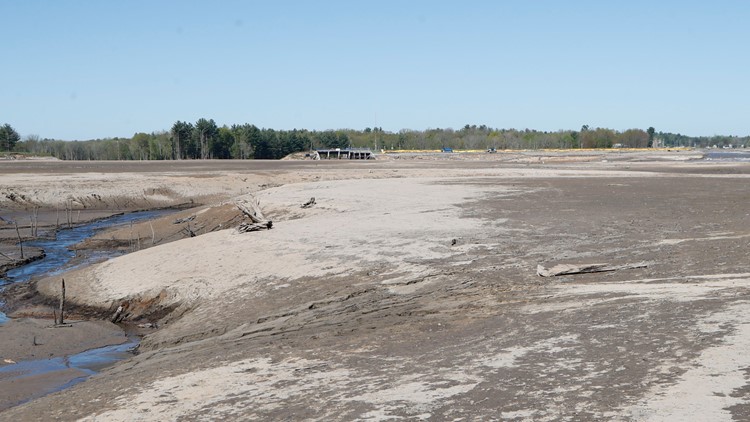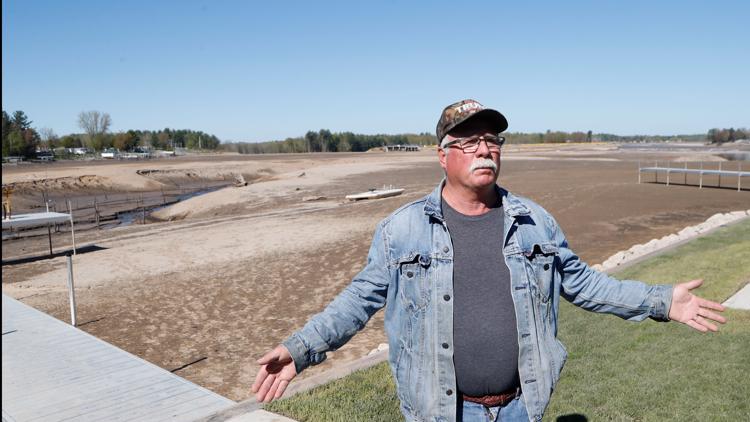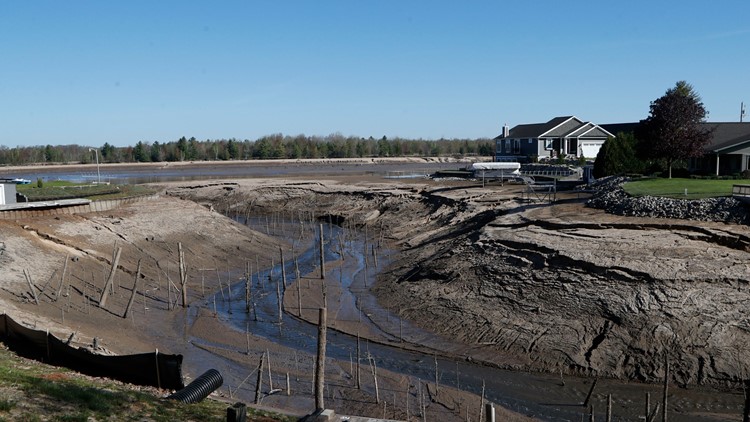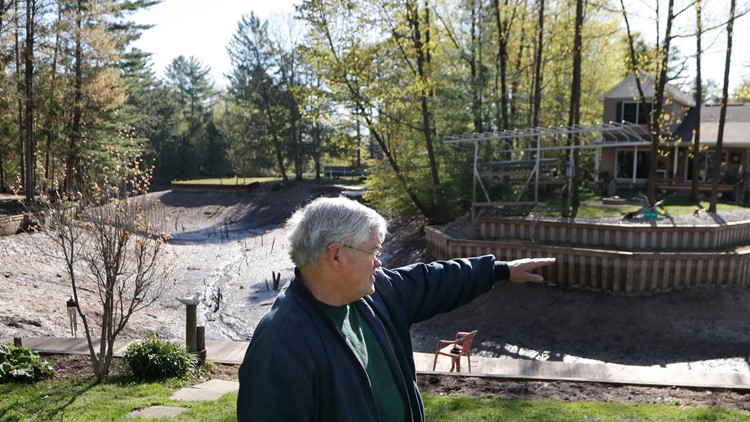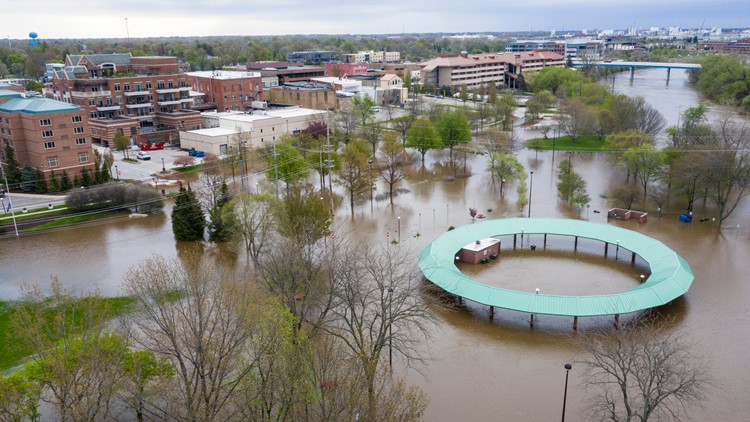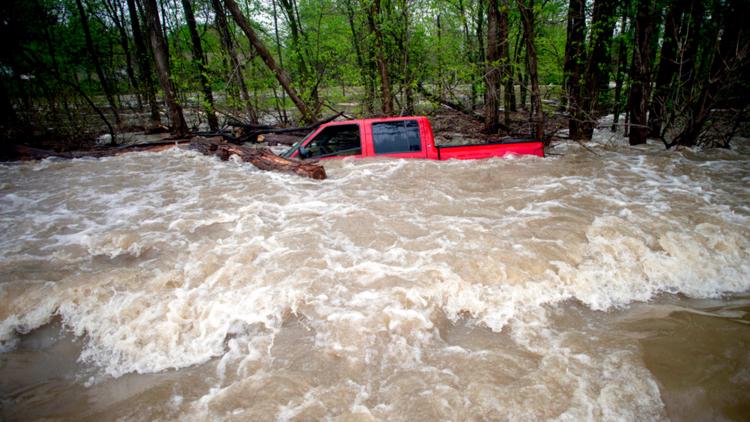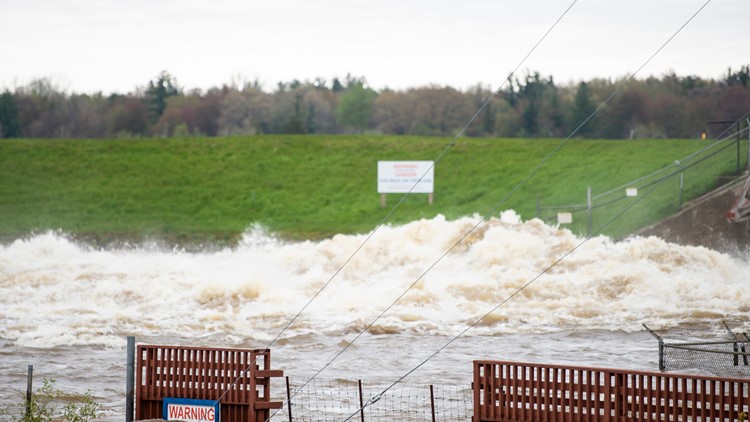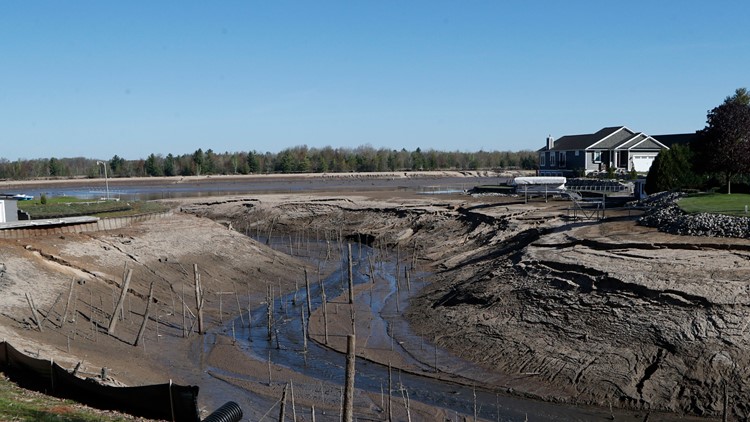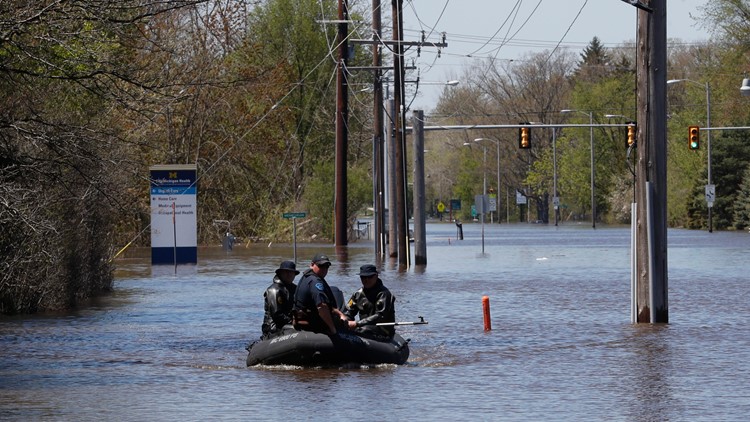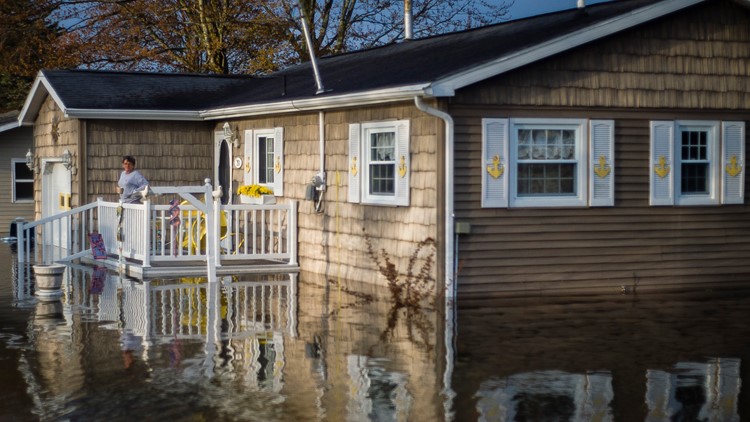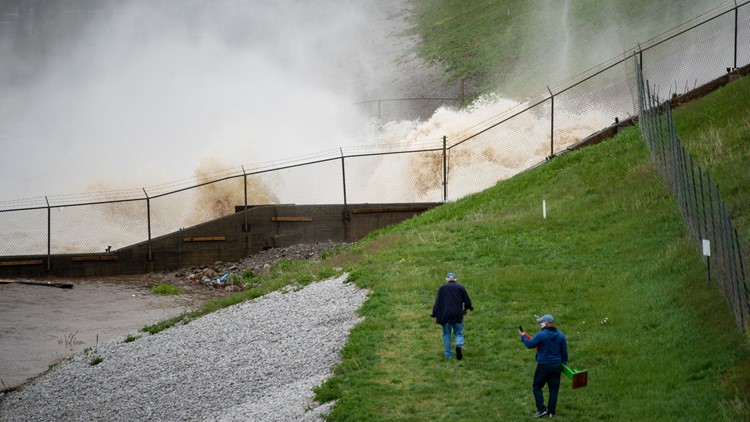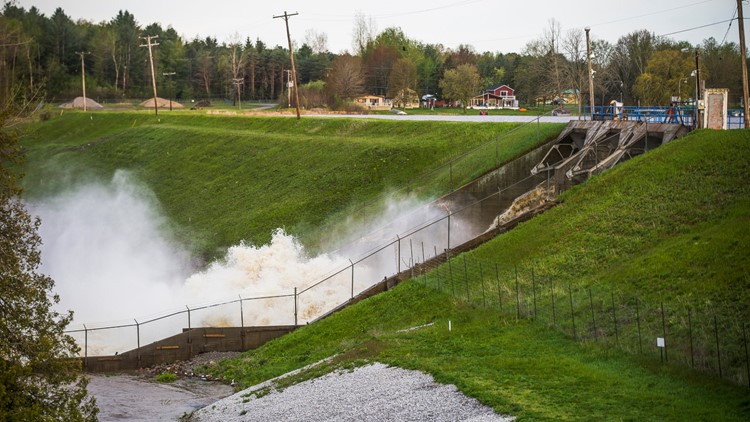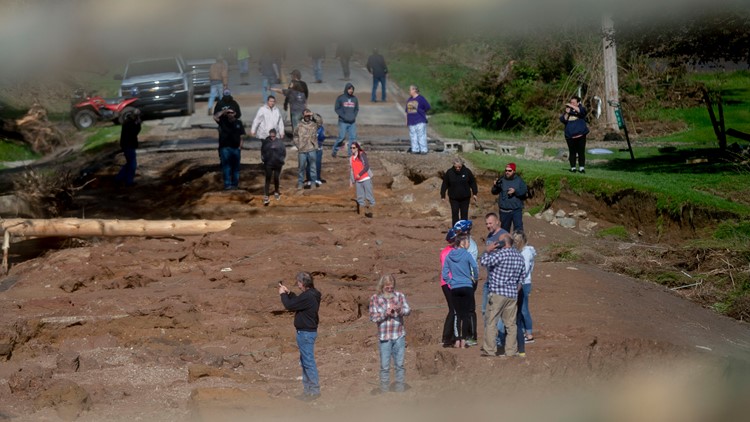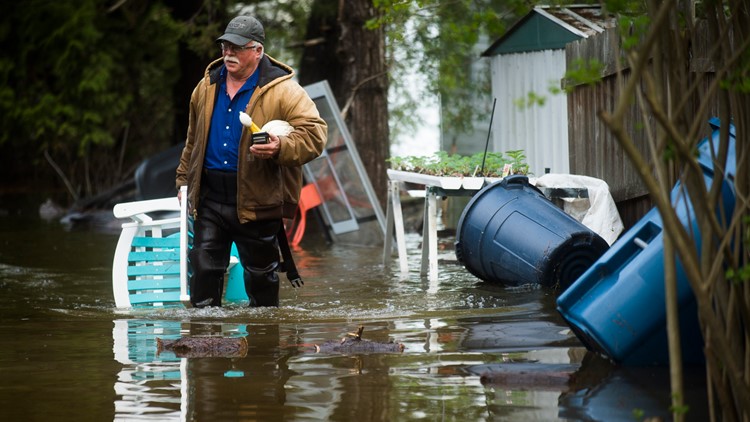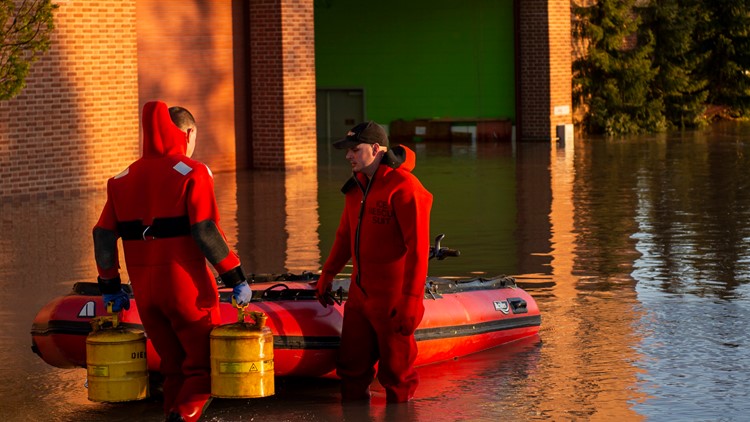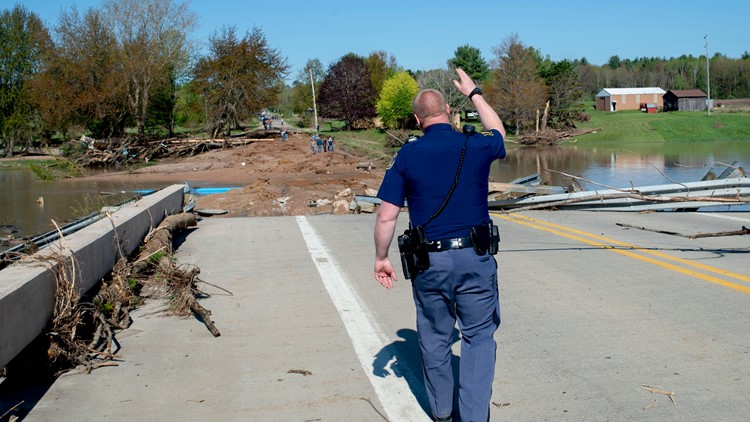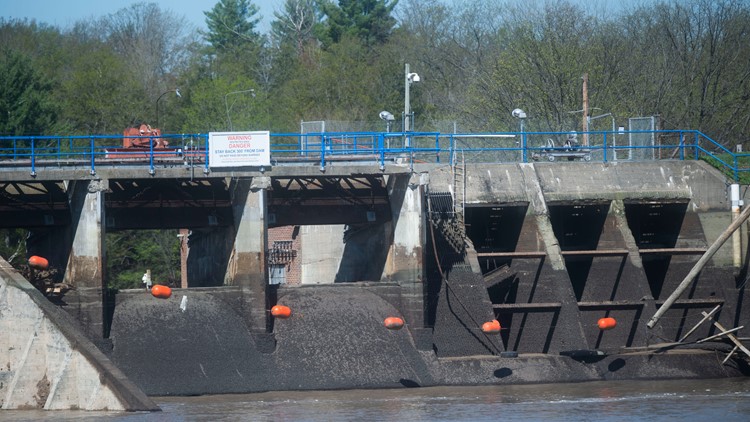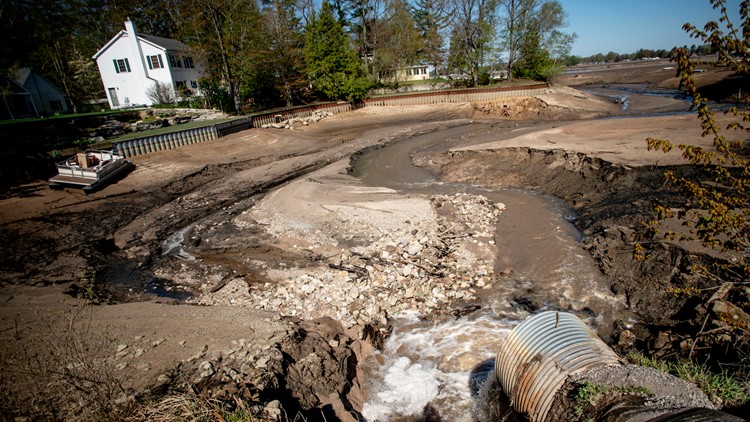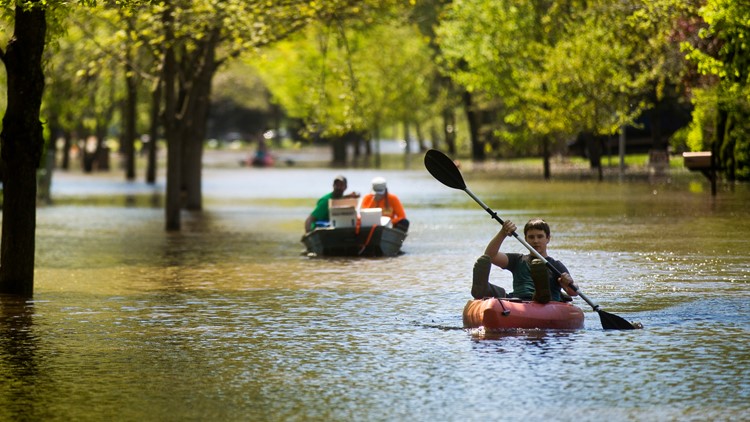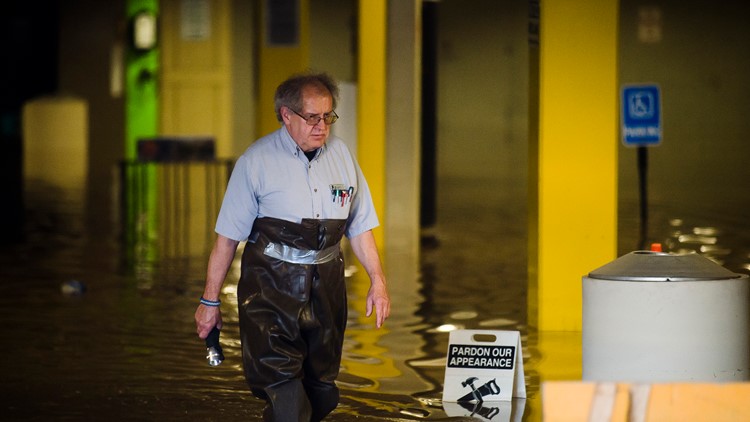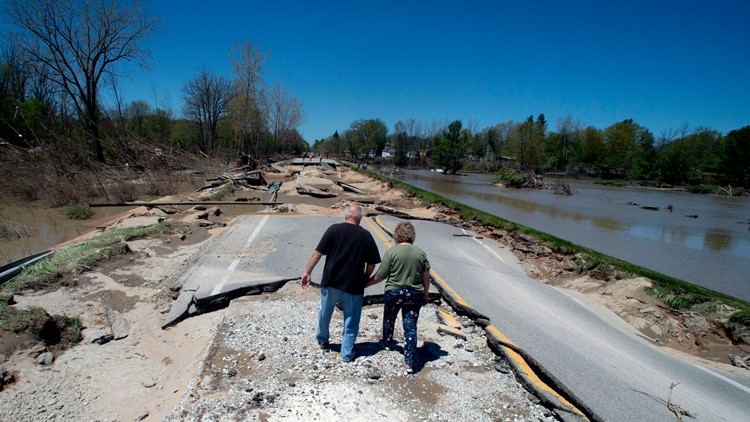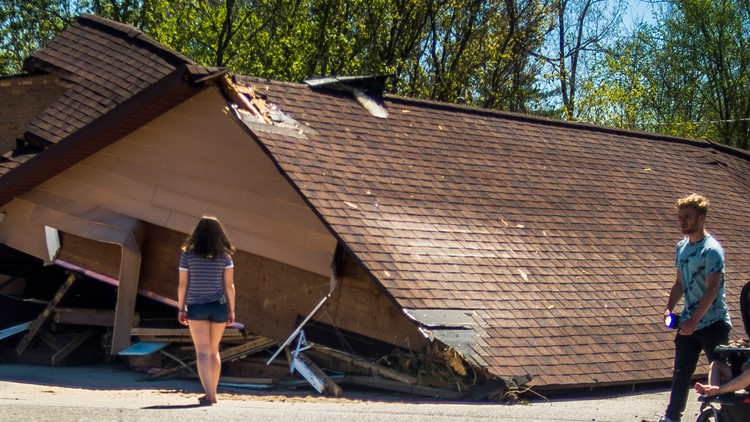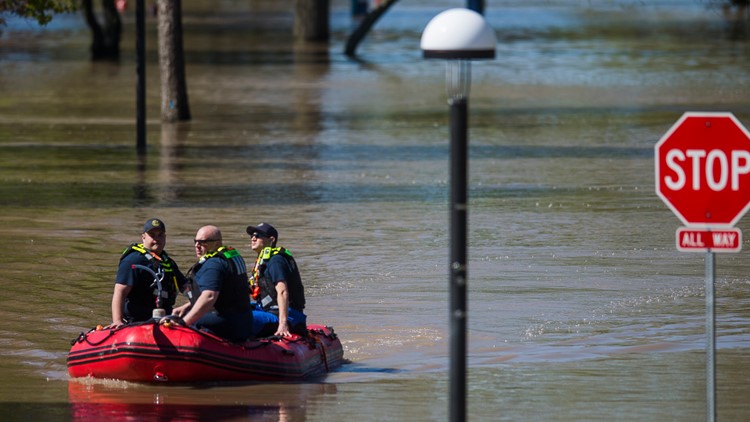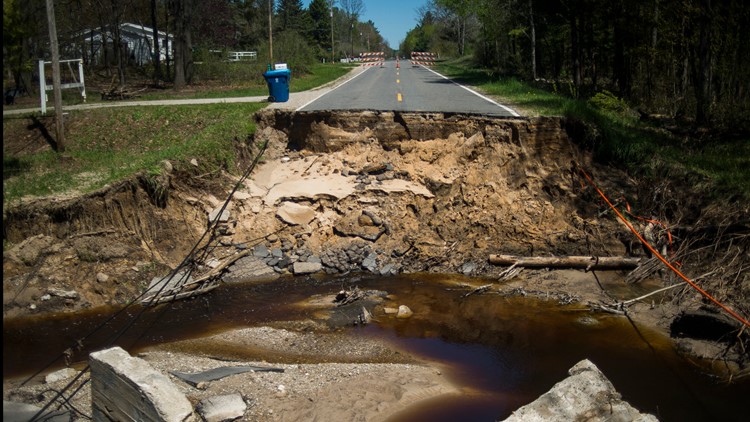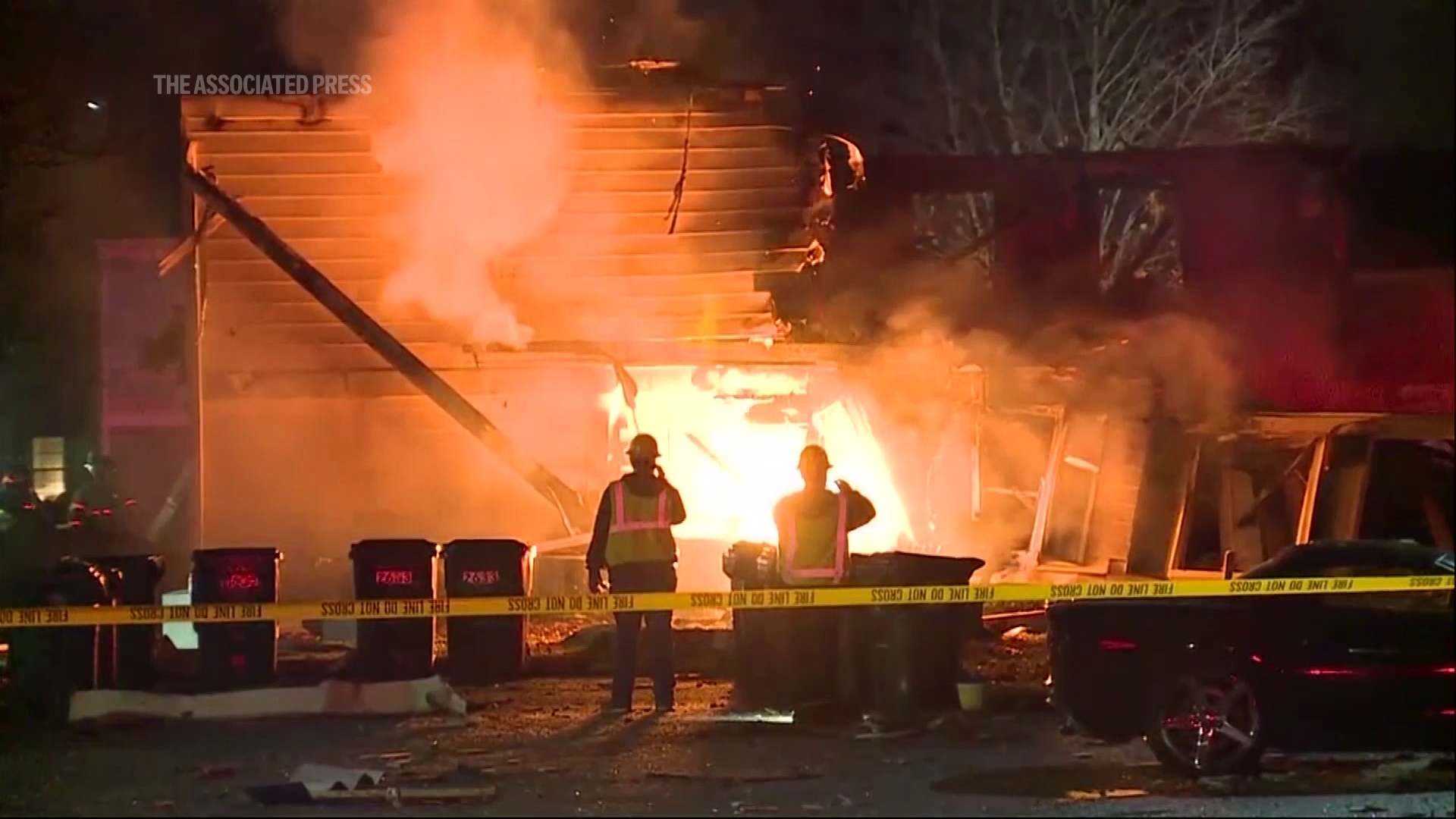MICHIGAN, USA — Friday Gov. Gretchen Whitmer issued an executive order adding Arenac, Gladwin, and Saginaw counties to the state of emergency following the widespread flooding in the Midland area.
Heavy rains caused those floods Tuesday night and resulted in the breach of Edenville and Sanford dams.
According to the governor's office, officials have evacuated around 500 people in Arenac County, over 100 in Gladwin County, and 750 residents in Saginaw County, with additional evacuations likely coming over the weekend.
“This news today is exactly what we needed,” said Rep. Jason Wentworth (R-Clare). “I am thankful the governor approved our request. There are still people in desperate need across Gladwin and Arenac counties, but this declaration will provide the much needed support and additional boots on the ground from the state.”
On Tuesday, May 19, heavy rainfall in Midland County which led to the breach of the Edenville and Sanford Dams. Whitmer declared a state of emergency for Midland County on Tuesday, and on Wednesday at a press conference at Midland High School, she announced that officials had successfully evacuated 10,000 residents from the area with no casualties.
Thursday, President Donald Trump declared that an emergency exists in the State of Michigan and ordered federal assistance to supplement the State and local response in efforts to relief after the flooding.
Flooding, dam breaches in Midland County
Friday, the U.S. Army Corps of Engineers Detroit District announced it had assembled teams to send to mid-Michigan. The teams will assist state and local leaders in assessing the conditions of the dams on the Tittabawassee River and to reduce further risk of failure.
The Detroit District will perform technical assistance in Midland and Gladwin counties.
STATE GUIDELINES FOR FLOOD CLEAN-UP
In the aftermath of massive flooding, there will be extensive clean up efforts. The Michigan Department of Environment, Great Lakes, and Energy provides this guidance on how to manage debris:
- After evacuation, be sure to check with local authorities before returning. Upon arrival at the property, conduct a visual inspection to check for any downed power lines.
- Itemize items on property, with special attention to hazardous materials such as paint, motor oil and solvents. For a list of common types of household hazardous waste and local household hazardous waste collection contacts, visit Michigan.gov/EGLEHHW.
- Use caution when walking through standing water or large debris piles to avoid hidden hazards, such as nails and other sharp objects.
- Residents and business owners should treat flood-related construction and demolition debris as potentially containing asbestos. This material should be in a wet condition until disposal. For more information on handling asbestos waste, visit Michigan.gov/EGLEAsbestos.
- Contact local officials regarding disposal instructions for structural materials, roofing, insulation, siding, appliances, carpet, furniture and other household items.
- Storm-generated woody and vegetative debris such as trees and untreated wood should be sorted and allowed to dry. These items can be chipped into mulch, composted or, saved for municipal collection in areas that do so.
- Check with your local city, township or village officials before lighting a fire. If no local ordinances are in effect, state law allows burning grass and leaves in municipalities with populations less than 7,500 unless prohibited by local ordinance. It also prohibits burning any yard debris within 1,400 feet of an incorporated city or village limit under EGLE air quality rules. For questions about open burning, visit gov/OpenBurning.
MORE on 13 ON YOUR SIDE:
RELATED VIDEO:
►Make it easy to keep up to date with more stories like this. Download the 13 ON YOUR SIDE app now.
Have a news tip? Email news@13onyourside.com, visit our Facebook page or Twitter. Subscribe to our YouTube channel.




